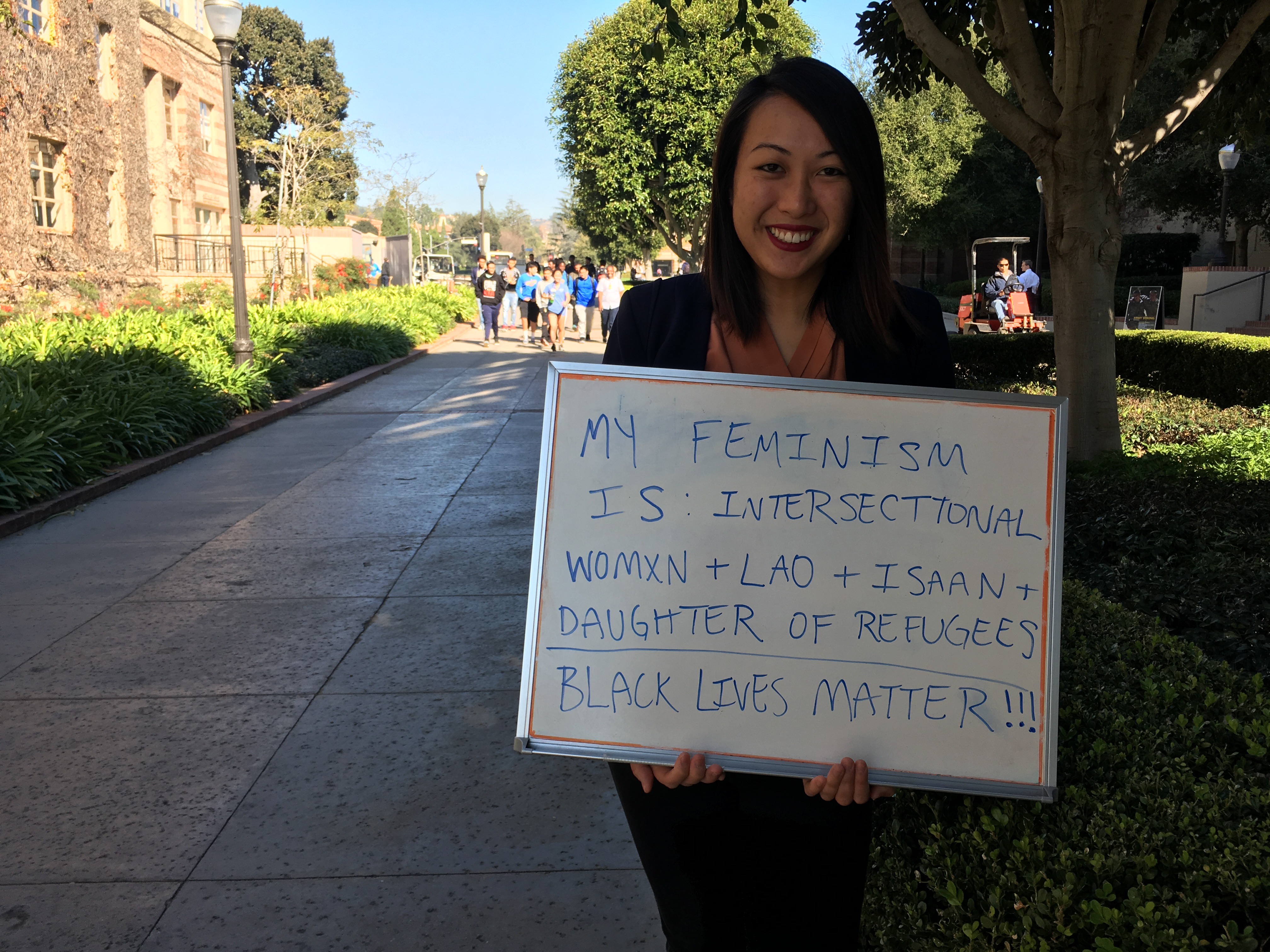Featured UCLA Feminist: Rita Phetmixay

Photo by Anandamayee Singh
A child of refugees from Laos and Thailand, Rita Phetmixay initially struggled to grapple with her identities as an Asian American Pacific Islander (AAPI) womxn. Rita Phetmixay grew up with three brothers in North Carolina, and she was separated from her half-sister because of the war in Laos. “California has easy access to social justice movements, but they aren’t really accessible in North Carolina. There’s no space in North Carolina to articulate Asian-American identities. It was very black and white when I grew up, and continues to be today.”
It wasn’t until joining Omega Phi Beta during her time at the University of North Carolina in Chapel Hill that Rita was truly able to find places to explore her identity as a womxn. “My sorority hosted a lot of really great programs. We had open mics on body image, and photo campaigns on feminist issues. But my feminism was still largely centered around white feminism. It wasn’t until I came to UCLA that I started my AAPI activism.”
At UCLA, Rita interacted with several powerful AAPI women in the Asian American Studies Department, and began to examine her identity as a Lao and Thai womxn. “At UCLA I really started to think about what it means to be a Lao and Thai-Isaan American womxn. The story is very different if you grow up in the West Coast, or if you grow up in the South as a Lao and Thai-Isaan American.” For her graduate thesis, Rita made a documentary recording her family’s history, and is very passionate about bringing stories of Lao-American people to the forefront.
“I think there’s an absence of Lao-American narratives in our activist circles. I never had a Lao-American female mentor growing up. The first Lao-American womxn in education I ever met was last year. And it was so validating to my existence to find a strong Lao-American womxn, but it was also like a unicorn sighting. There aren’t a lot of us in higher education,” said Rita, explaining her desire to ensure the continuity and expansion of pipeline programs for Lao women in higher education.
Currently, Rita is a Program Coordinator for Intergroup Relations and the GRIT Peer Coaching Program under Bruin Resource Center. Her job focuses extensively on ameliorating campus climate by unpacking social identities and providing spaces for students to converse in varying dialogues, learn, and grow. Rita makes sure to weave intersectional perspectives into all her work, because it’s a necessity to her feminism and all her work. “A lot of my work is fueled by my oppression as a womxn of color, and not having the tools to put my oppression into words. I feel really humbled that I get to work in activist spaces and interact with my feminism on a day to day basis.”
In the future, Rita hopes to use social media as a tool to educate the masses on feminist issues. “I hope that feminism continues to be critical of itself and that we work towards a feminism that encompasses the complexities of being a womxn with intersectional experiences.Our struggle should be for equity and not just equality.”




